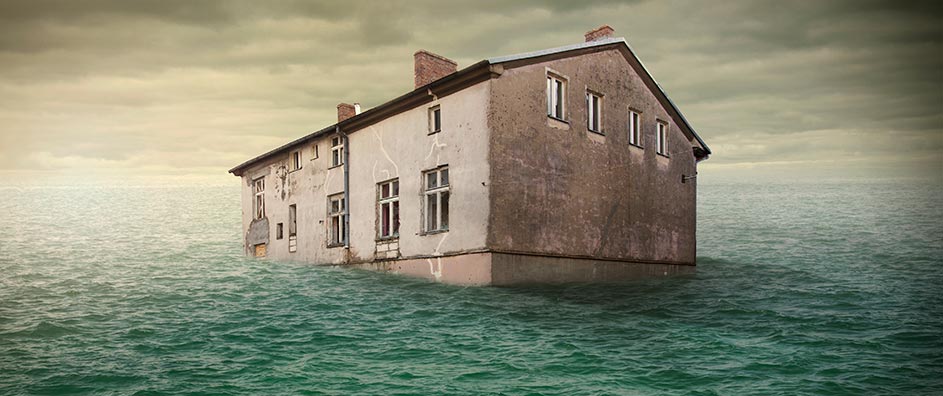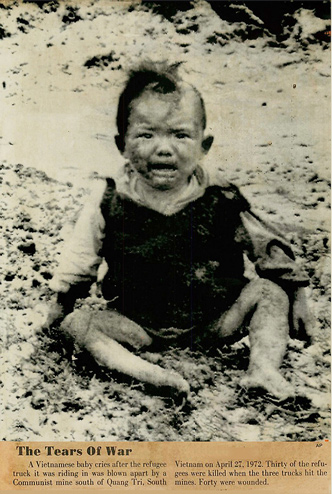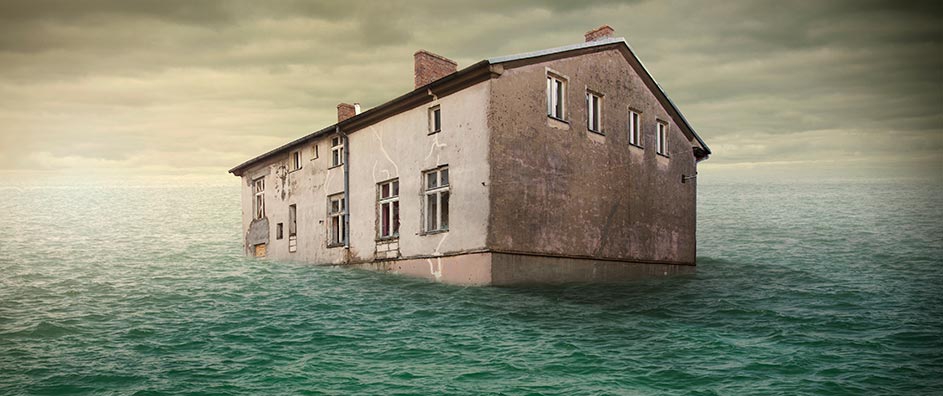The views expressed in our content reflect individual perspectives and do not represent the authoritative views of the Baha'i Faith.
 Two kinds of disaster imperil us – natural and man-made. Our wars and genocides have harmed and killed many times the number of people ever hurt by natural disasters, so promoting peace should be our priority.
Two kinds of disaster imperil us – natural and man-made. Our wars and genocides have harmed and killed many times the number of people ever hurt by natural disasters, so promoting peace should be our priority.
But with humanity’s remarkable scientific advances in the past several decades, we have learned that we can find ways to mitigate or avoid even the worst natural disasters by turning society’s resources toward protecting the sanctity of human life.
In May of 1803, two hundred and ten years ago, the Lewis and Clark expedition set off across the uncharted western part of the North American continent, urged by President Jefferson to find a way to the Pacific Ocean. Gone for two and a half years, the expedition famously encountered many indigenous tribes such as the Sioux and the Mandan, recruited the Shoshone woman Sacajawea as their interpreter and guide, and lived through multiple natural disasters, including floods and large earthquakes. How did they do it?
A member of the Lewis and Clark expedition kept a diary, and he said the earth shook violently one night, making the earth move, the mountains groan and the trees sway violently and crash to the earth. But the earthquake did not hurt any of members of the expedition, because they all slept on the ground under the sky. His story reminds us that many so-called “natural” disasters tend to be man-made, instead of some act of vengeance or retribution perpetrated by an angry God.
Which brings up the eternal questions: If a loving and merciful God exists, why would He let us suffer? Why would God allow natural disasters to affect so many innocent people? How could a just, all-powerful God permit the existence of evil? This fundamental question – usually called theodicy or “the problem of evil” – has plagued humanity since the beginning of time.
The Baha’i teachings resolve the problem of evil in a unique and very modern way:
…the evil spirit, Satan or whatever is interpreted as evil, refers to the lower nature in man. This baser nature is symbolized in various ways. In man there are two expressions, one is the expression of nature, the other the expression of the spiritual realm. The world of nature is defective…. God has never created an evil spirit; all such ideas and nomenclature are symbols expressing the mere human or earthly nature of man. It is an essential condition of the soil of earth that thorns, weeds and fruitless trees may grow from it. Relatively speaking, this is evil; it is simply the lower state and baser product of nature. – Abdu’l-Baha, Foundations of World Unity, p. 76.
Complete evil, according to the Baha’i teachings, does not exist. Baha’is don’t believe in a purely evil force, in the devil or a place called Hell, but instead see evil as simply the absence of good:
Evil is imperfection. Sin is the state of man in the world of the baser nature, for in nature exist defects such as injustice, tyranny, hatred, hostility, strife: these are characteristics of the lower plane of nature…. Through education we must free ourselves from these imperfections. – Abdu’l-Baha, Paris Talks, p. 177.
 This theory of the relativity of evil — which has enormous implications for how we treat each other — makes all people our relatives, relegates the very idea of an evil person to the past, and gives us each the ability to look for the good in others, rather than its shadow. Abdu’l-Baha counseled the Baha’is to avoid even thinking of another human being as evil:
This theory of the relativity of evil — which has enormous implications for how we treat each other — makes all people our relatives, relegates the very idea of an evil person to the past, and gives us each the ability to look for the good in others, rather than its shadow. Abdu’l-Baha counseled the Baha’is to avoid even thinking of another human being as evil:
How then can we flatter ourselves and despise others? Let us therefore be humble, without prejudices, preferring others’ good to our own! Let us never say, ’I am a believer but he is an infidel’, ’I am near to God, whilst he is an outcast’. We can never know what will be the final judgment! Therefore let us help all who are in need of any kind of assistance.
Let us teach the ignorant, and take care of the young child until he grows to maturity. When we find a person fallen into the depths of misery or sin we must be kind to him, take him by the hand, help him to regain his footing, his strength; we must guide him with love and tenderness, treat him as a friend not as an enemy. We have no right to look upon any of our fellow-mortals as evil. – Abdu’l-Baha, Paris Talks, pp. 147-148.
If we believe that evil is relative, that the darkness is only the absence of light, then how should we respond to large-scale disasters and the human suffering they cause? The Baha’i teachings give us a Titanic example.
Read the next article in the series – Trust in God, and Build the Best Ship
You May Also Like
Comments


















According to the teaching of the Prophets, disease and all other forms
of calamity are due to disobedience to the Divine Commands. Even
disasters due to floods, hurricanes, and earthquakes are attributed by
‘Abdu’l-Bahá indirectly to this cause. The suffering that follows error
is not vindictive, however, but educative and remedial. It is God’s
Voice proclaiming to man that he has strayed from the right path. If the
suffering is terrible, it is only because the danger of wrongdoing is
more ...terrible, for “the wages of sin is death."
Just as calamity is due to disobedience, so deliverance from calamity
can be obtained only by obedience. There is no chance or uncertainty
about the matter. Turning from God inevitably brings disaster, and
turning to God as inevitably brings blessing.
(Dr. J.E. Esslemont, Bahá’u’lláh and the New Era, p. 95)